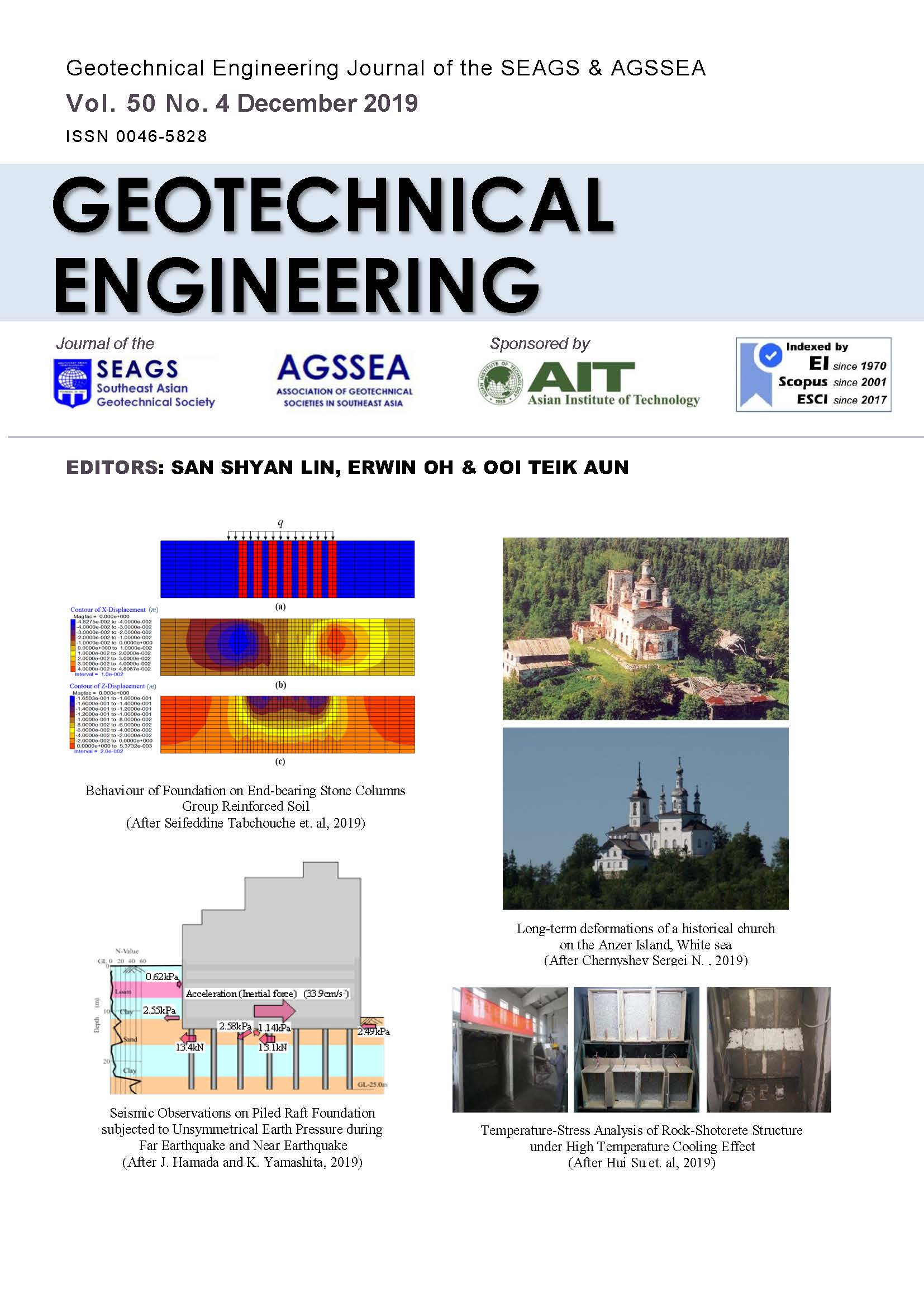Slope Stability Problem and Bio-engineering Approach on Slope Protection: Case Study of Cox’s Bazar Area, Bangladesh
Main Article Content
Abstract
The slope stability problem of the six (06) locations in the Cox’s Bazar district, Bangladesh were analyzed through laboratory measurement of the engineering properties of the soil samples, tensile strength of roots and numerical modeling using both limit equilibrium and finite element method. The modeling results show that the slopes are stable (FS value greater than 1) at the dry condition and the wet condition unless rocks are weathered. At the wet condition most of the slopes with loos soil are vulnerable for landslide and need supports to stabilize. We suggested the vegetal support (tap-rooted tree) to stabilize the vulnerable slopes of the study area. The experimental result shows that the roots of the local growing tap rooted trees (e.g., Chapalish, Korai, Gorjon, Telsur) grew linearly within a few years. The roots reached their length of 3-5 m within 4/5 years, yielding tensile strength of 70-80 MPa that enough to avoid the slope failure.
Article Details

This work is licensed under a Creative Commons Attribution-NonCommercial-NoDerivatives 4.0 International License.
Copyright © 2019 Association of Geotechnical Societies in Southeast Asia (AGSSEA) - Southeast Asian Geotechnical Society (SEAGS).


